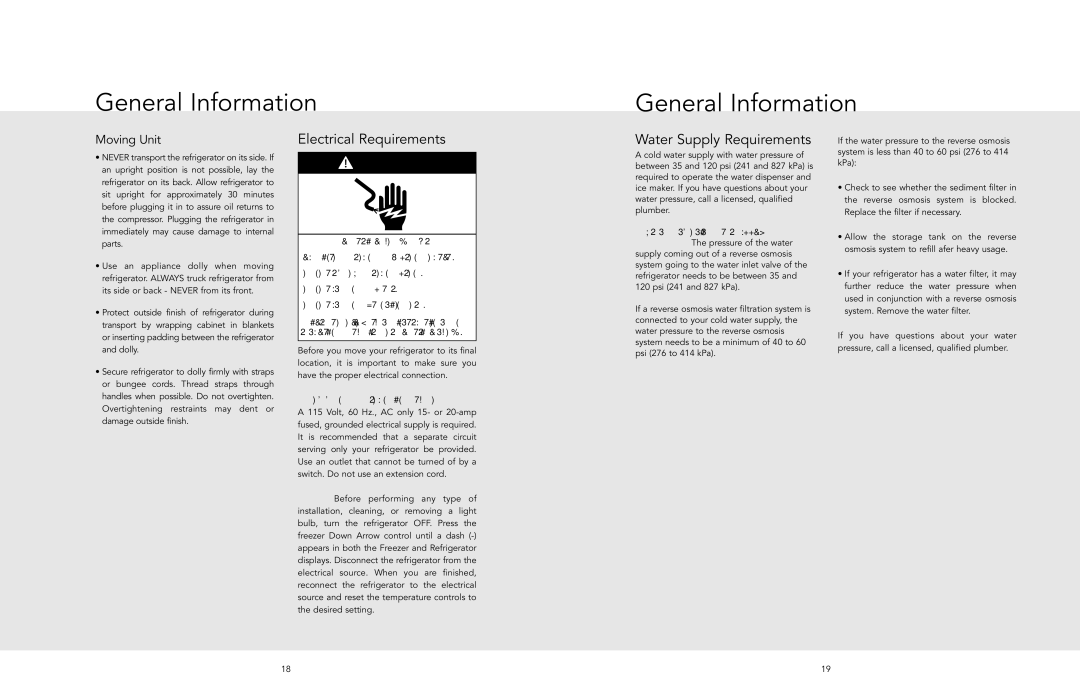
General Information
General Information
Moving Unit
•NEVER transport the refrigerator on its side. If an upright position is not possible, lay the refrigerator on its back. Allow refrigerator to sit upright for approximately 30 minutes before plugging it in to assure oil returns to the compressor. Plugging the refrigerator in immediately may cause damage to internal parts.
•Use an appliance dolly when moving refrigerator. ALWAYS truck refrigerator from its side or back - NEVER from its front.
•Protect outside finish of refrigerator during transport by wrapping cabinet in blankets or insertingpadding between the refrigerator and dolly.
•Secure refrigerator to dolly firmly with straps or bungee cords. Thread straps through handles when possible. Do not overtighten. Overtightening restraints may dent or damage outside finish.
Electrical Requirements
![]() WARNING
WARNING
Electrical Shock Hazard
Plug into a grounded 3 prong outlet.
Do not remove ground prong.
Do not use an adapter.
Do not use an extension cord.
Failure to follow these instructions can result in death, fire, or electrical shock.
Before you move your refrigerator to its final location, it is important to make sure you have the proper electrical connection.
Recommended Grounding Method
A 115 Volt, 60 Hz., AC only 15- or
NOTE: Before performi ng any type of installation, cleaning, or removing a light bulb, turn the refrigerator OFF. Press the freezer Down Arrow control until a dash
Water Supply Requirements
A cold water supply with water pressure of between 35 and 120 psi (241 and 827 kPa) is required to operate the water dispenser and ice maker. If you have questions about your water pressure, call a licensed, qualified plumber.
Reverse Osmosis Water Supply IMPORTANT: The pressure of the water supply coming out of a reverse osmosis system going to the water inlet valve of the refrigerator needs to be between 35 and 120 psi (241 and 827 kPa).
If a reverse osmosis water filtration system is connected to your cold water supply, the water pressure to the reverse osmosis system needs to be a minimum of 40 to 60 psi (276 to 414 kPa).
If the water pressure to the reverse osmosis system is less than 40 to 60 psi (276 to 414 kPa):
•Check to see whether the sediment filter in the reverse osmosis system is blocked. Replace the filter if necessary.
•Allow the storage tank on the reverse osmosis system to refill afer heavy usage.
•If your refrigerator has a water filter, it may further reduce the water pressure when used in conjunction with a reverse osmosis system. Remove the water filter.
If you have questions about your water pressure, call a licensed, qualified plumber.
18 | 19 |
